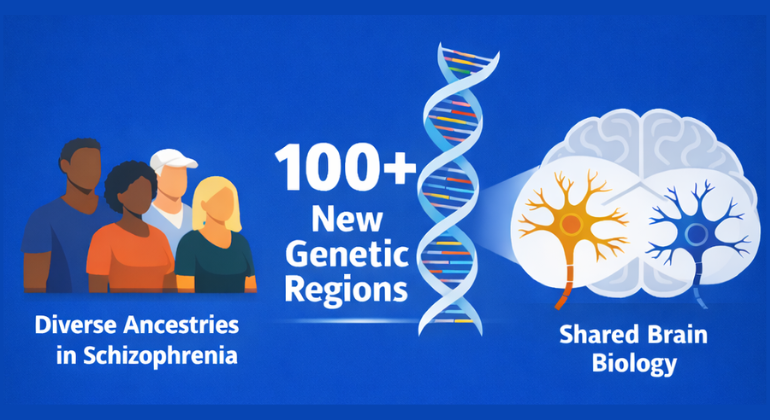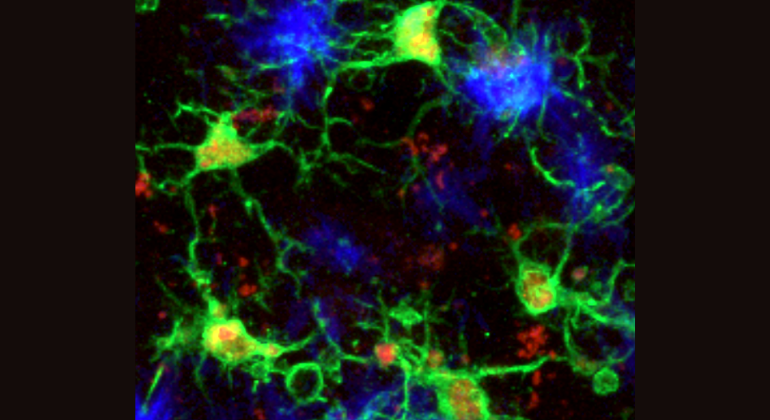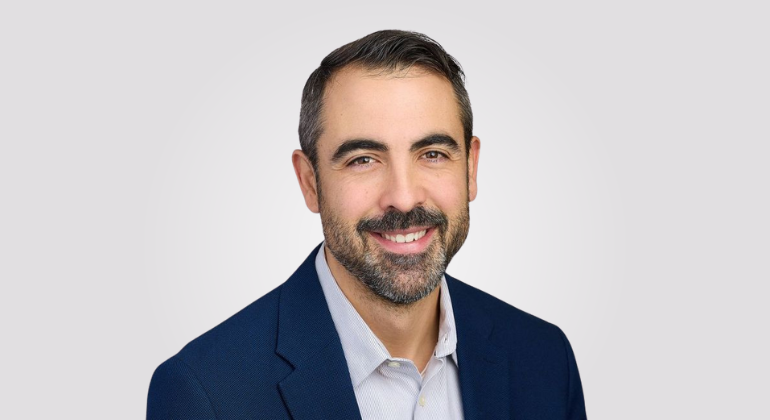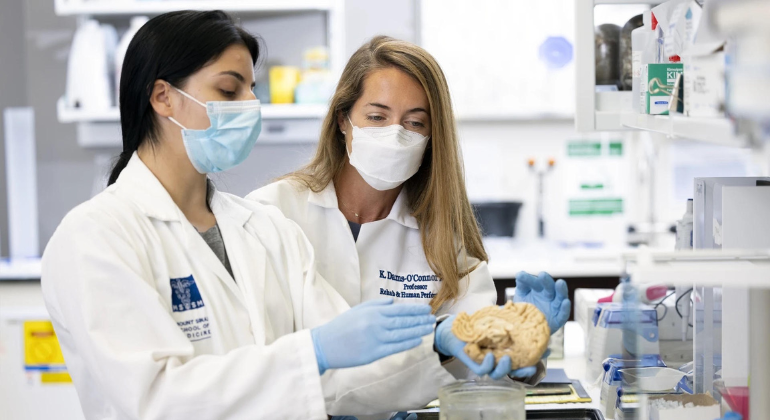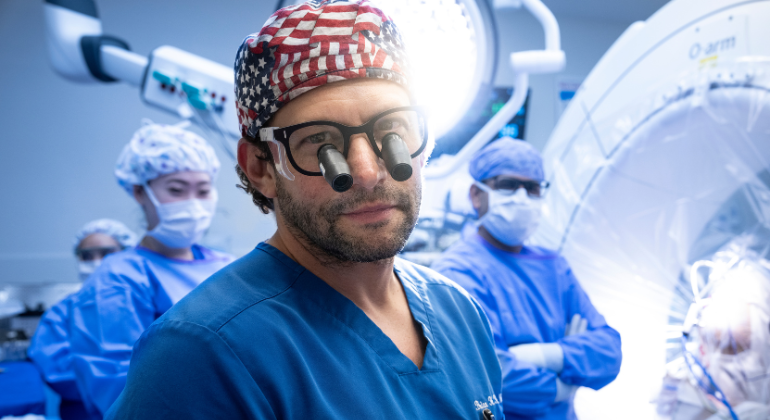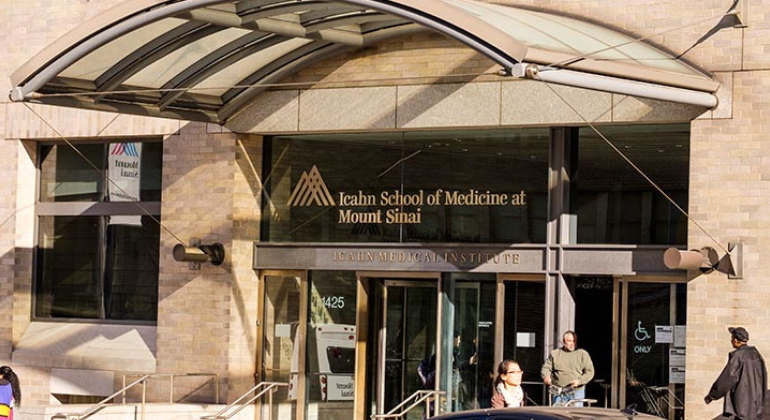Researchers Identify Area Of The Brain That Processes Empathy
An international team led by Mount Sinai School of Medicine has shown that one area of the brain is the only activity center of empathy.
An international team led by researchers at Mount Sinai School of Medicine in New York has for the first time shown that one area of the brain, called the anterior insular cortex, is the activity center of human empathy, whereas other areas of the brain are not. The study is published in the September 2012 issue of the journal Brain.
Empathy, the ability to perceive and share another person's emotional state, has been described by philosophers and psychologists for centuries. In the past decade, scientists have used powerful functional MRI imaging to identify several regions in the brain that are associated with empathy for pain. This most recent study, however, firmly establishes that the anterior insular cortex is where the feeling of empathy originates.
"Now that we know the specific brain mechanisms associated with empathy, we can translate these findings into disease categories and learn why these empathic responses are deficient in neuropsychiatric illnesses, such as autism," said Patrick R. Hof, MD, Regenstreif Professor and Vice-Chair, Department of Neuroscience at Mount Sinai, a co-author of the study. "This will help direct neuropathologic investigations aiming to define the specific abnormalities in identifiable neuronal circuits in these conditions, bringing us one step closer to developing better models and eventually preventive or protective strategies."
Xiaosi Gu, PhD, who conducted the research in the Department of Psychiatry at Mount Sinai, worked with researchers from the United States and China, to evaluate Chinese patients, at Beijing Tiantan Hospital, who were shown color photographs of people in pain. Three patients had lesions caused by removing brain tumors in the anterior insular cortex; nine patients had lesions in other parts of the brain and 14 patients (the controls) had neurologically intact brains. The research team found that patients with damage restricted to the anterior insular cortex had deficits in explicit and implicit empathetic pain processing.
"In other words, patients with anterior insular lesions had a hard time evaluating the emotional state of people in pain and feeling empathy for them, compared to the controls and the patients with anterior cingulate cortex lesions." said Dr. Jin Fan, corresponding author of this study and an assistant professor at the Department of Psychiatry at Mount Sinai.
According to Dr. Gu, this study provides the first evidence suggesting that the empathy deficits in patients with brain damage to the anterior insular cortex are surprisingly similar to the empathy deficits found in several psychiatric diseases, including autism spectrum disorders, borderline personality disorder, schizophrenia, and conduct disorders, suggesting potentially common neural deficits in those psychiatric populations.
"Our findings provide strong evidence that empathy is mediated in a specific area of the brain," said Dr. Gu, who now works at University College London. "The findings have implications for a wide range of neuropsychiatric illnesses, such as autism and some forms of dementia, which are characterized by prominent deficits in higher-level social functioning."
This study suggests that behavioral and cognitive therapies can be developed to compensate for deficits in the anterior insular cortex and its related functions such as empathy in patients. These findings can also inform future research evaluating the cellular and molecular mechanisms underlying complex social functions in the anterior insular cortex and develop possible pharmacological treatments for patients.
The study was funded by the National Institute of Health, the James S. McDonnell Foundation and a Brain and Behavior Research Foundation NARSAD young investigator award.
About The Mount Sinai Medical Center
The Mount Sinai Medical Center encompasses both The Mount Sinai Hospital and Mount Sinai School of Medicine. Established in 1968, Mount Sinai School of Medicine is one of the leading medical schools in the United States. The Medical School is noted for innovation in education, biomedical research, clinical care delivery, and local and global community service. It has more than 3,400 faculty in 32 departments and 14 research institutes, and ranks among the top 20 medical schools both in National Institutes of Health (NIH) funding and by U.S. News & World Report.
The Mount Sinai Hospital, founded in 1852, is a 1,171-bed tertiary- and quaternary-care teaching facility and one of the nation's oldest, largest and most-respected voluntary hospitals. In 2012, U.S. News & World Report ranked The Mount Sinai Hospital 14th on its elite Honor Roll of the nation's top hospitals based on reputation, safety, and other patient-care factors. Mount Sinai is one of 12 integrated academic medical centers whose medical school ranks among the top 20 in NIH funding and by U.S. News & World Report and whose hospital is on the U.S. News & World Report Honor Roll. Nearly 60,000 people were treated at Mount Sinai as inpatients last year, and approximately 560,000 outpatient visits took place.
About the Mount Sinai Health System
Mount Sinai Health System is one of the largest academic medical systems in the New York metro area, with 48,000 employees working across seven hospitals, more than 400 outpatient practices, more than 600 research and clinical labs, a school of nursing, and a leading school of medicine and graduate education. Mount Sinai advances health for all people, everywhere, by taking on the most complex health care challenges of our time—discovering and applying new scientific learning and knowledge; developing safer, more effective treatments; educating the next generation of medical leaders and innovators; and supporting local communities by delivering high-quality care to all who need it.
Through the integration of its hospitals, labs, and schools, Mount Sinai offers comprehensive health care solutions from birth through geriatrics, leveraging innovative approaches such as artificial intelligence and informatics while keeping patients’ medical and emotional needs at the center of all treatment. The Health System includes approximately 9,000 primary and specialty care physicians and 10 free-standing joint-venture centers throughout the five boroughs of New York City, Westchester, Long Island, and Florida. Hospitals within the System are consistently ranked by Newsweek’s® “The World’s Best Smart Hospitals, Best in State Hospitals, World Best Hospitals and Best Specialty Hospitals” and by U.S. News & World Report's® “Best Hospitals” and “Best Children’s Hospitals.” The Mount Sinai Hospital is on the U.S. News & World Report® “Best Hospitals” Honor Roll for 2025-2026.
For more information, visit https://www.mountsinai.org or find Mount Sinai on Facebook, Instagram, LinkedIn, X, and YouTube.
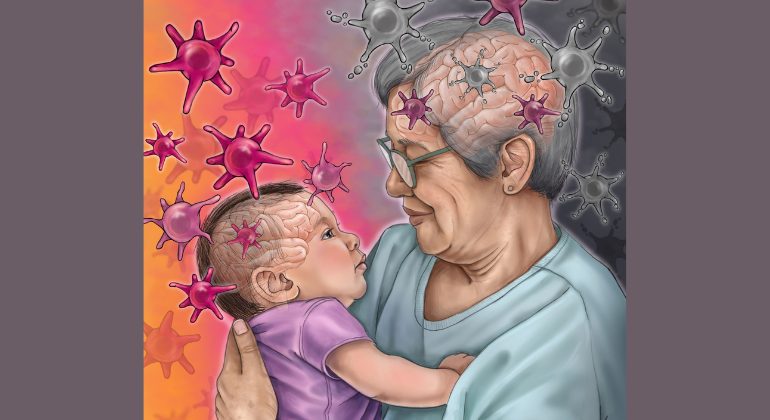
New Study Links Altered Cellular States to Brain Structure
Jan 22, 2026 View All Press Releases
Mount Sinai Study Finds PTSD May Accelerate Brain Aging in 9/11 Responders
Dec 08, 2025 View All Press Releases